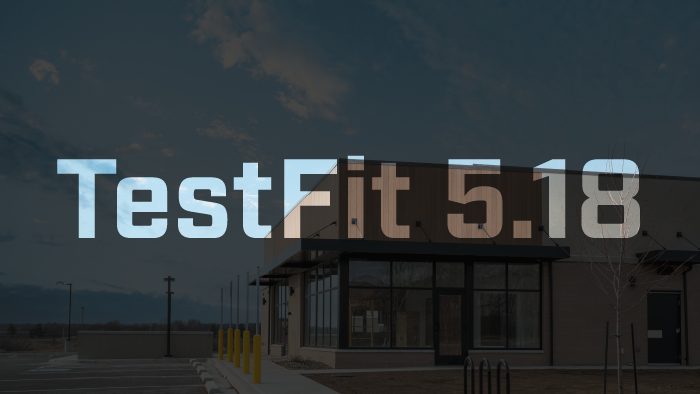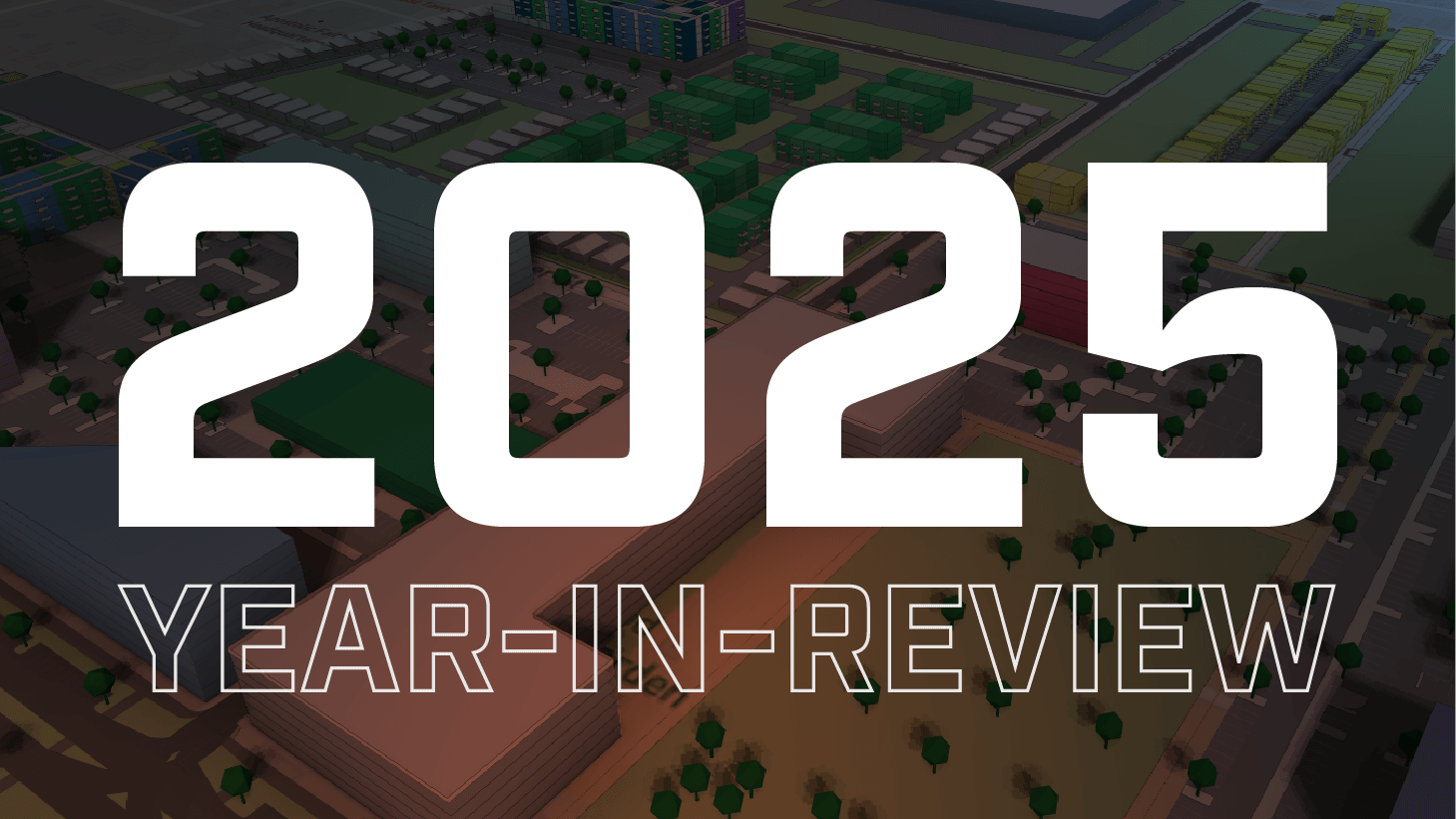
2024 marked the year generative design became more accessible, enabling you to create boundless design options. We've also rolled out major updates, including a new version for urban planning, zoning and 3D topo data, and a new building type for Data Centers.
Let’s dive right in to explore all the improvements we’ve made last year.

Urban Planner
Earlier this year, we launched Urban Planner, a new version of TestFit that streamlines large-scale urban planning with massing studies. We integrated an automated massing tool inspired by our Site Solver capabilities, making it even more powerful for creating and evaluating massing studies efficiently.

Civil Engineering Updates
Civil engineering was a major focus for us in 2024, recognizing its important role in site planning. We introduced several powerful features:
- Cut and fill calculations: Automatically balance and optimize site grading while integrating cost factors for earthwork decisions.

- 3D terrain: Accurately represent elevation changes and auto-grade drives for seamless integration of context buildings.

- Impervious coverage calculations: Simplify compliance with rainwater requirements with impervious vs pervious coverage percentages.
- Vehicle path planning: Explore site circulation with different vehicle types, ensuring accessibility and efficiency.

Generative Design
This year marked the release of generative design, fundamentally transforming how TestFit works. Instead of focusing on a single solution, you can now generate thousands of solves in seconds, gaining a broad range of possibilities to filter, sort, and edit. Key features include:
- Generate first: Explore all the possibilities from multi-family to industrial before deciding on the right program for your site.
.gif)
- Solve for presets: Seamlessly import your existing unit and building configurations to solve for your own presets without duplicating work.

- Sort by KPI: Find the best development scenario that aligns with your most important KPIs such as FAR, yield on cost, unit counts and more.

- Set unit & parking mix goals: Fine-tune designs to align with unique development goals, boosting efficiency and maximizing space utilization.

This major release represents a significant leap in TestFit’s ability to unleash boundless building optimization, enabling you to explore what you might not even think to try in seconds.
Data Centers
As the demand of Data Centers is rising, we’ve launched a new Data Center configurator tailored for large-scale, high-power campuses. You can now model complex facilities, calculate power requirements, analyze built-in power plant data, and optimize for critical power with generative design.

Making Your Life Easier
2024 brought several user-focused updates to make TestFit even more intuitive and efficient:
- New UI Design: A streamlined interface with cleaner and better navigation designed to help you make even faster in feasibility studies.

- Project North: Easily rotate plans to align with site-specific orientations, so you can set your plan orientation for different drawings as needed.

- Hover Preview: Instantly preview solves without committing changes by hovering over the preset panel for different typologies.

- Revit 2025 Compatibility: Seamlessly integrate TestFit outputs into the broader design process.
- TestFit Accelerator: Accessible training courses and downloadable files to level up user expertise.

TestFit on the Web
According to the 2024 ROI Report, 96% of our customers agree that TestFit has improved their internal and/or external communications between key stakeholders. To enhance this collaboration, we’ve added TestFit to the web, enabling users to access all their deals in one place.
- Deal map: Get a bird’s-eye perspective of deal locations and their status to keep track of active, completed, lost, won, and paused deals.

- Deal sharing: Share each deal internally and externally directly from TestFit to keep everyone on the same page.

- Cost model: Create conceptual cost estimates with automatic quantity takeoffs and track cost updates in real time.

Data Maps
In 2024, TestFit enhanced its Data Maps capabilities to provide even greater context and precision for real estate feasibility studies. By integrating new layers and data sources, you now have access to powerful tools that improve decision-making from the earliest stages of site planning. We’ve added the following data:
- Zoning Data: As the one of our most requested features, zoning information is now directly accessible within TestFit. You can even integrate the zoning requirements into generative design to ensure the solves are compliant.

- ESRI Map Data: A second satellite imagery source was added, giving users the flexibility to toggle between high-resolution and more recent satellite views for more clarity.
- Power Plant Data: For Data Centers, we introduced power plant mapping, allowing you to locate nearby power infrastructure and assess power availability for your site.

- Soil Data: Understanding soil composition is critical for feasibility and construction planning. You can now evaluate site conditions and plan accordingly with detailed soil data layers within TestFit.

Parking & Improved Circulation
But we didn’t forget our origin. We’ve made significant improvements in parking and circulation, so you can create the most efficient parking lot layout, garden buildings, and road layout.
- Manual parking: Now you have better control over the parking layout that our real-time AI generates with manual parking. You can add, remove, and edit drive aisles to create a layout that works best for your needs.

- Single-loaded parking: Meet the parking ratio you need by maximize the number of stalls you can fit in a parking lot with single-loaded parking drives.

Looking Ahead: 2025 and Beyond
As we enter 2025, TestFit remains committed to innovation. Our near-term goals include:
- Expanding pond integration for cut-and-fill calculations.
- Enhancing reporting tools for better compatibility with industry-standard formats.
- Offering more customization for industrial and data center buildings.
Long-term, we’re exploring ways to improve accessibility by further integrating our desktop and web applications. Generative design will also continue to evolve, scaling from single-site solves to multi-site feasibility studies.
Thank You for a Fantastic Year
None of this would be possible without the 7,700+ users evaluating over 3,200 deals in TestFit every week. Your feedback and partnership drive us to deliver a real estate feasibility platform that redefines what’s possible in our industry.







